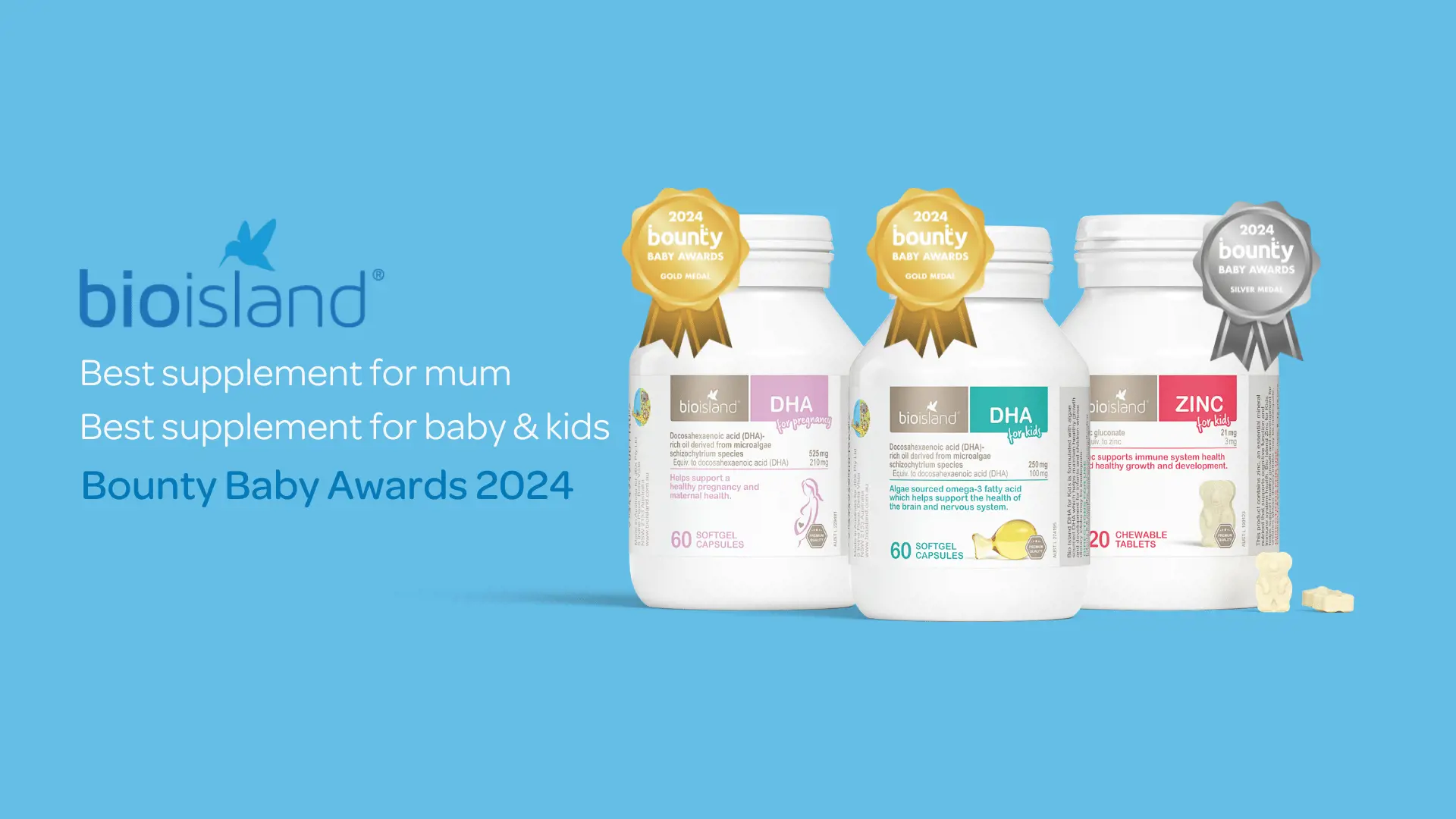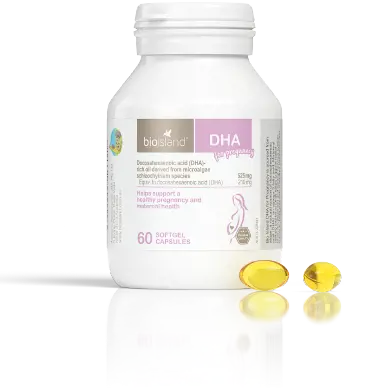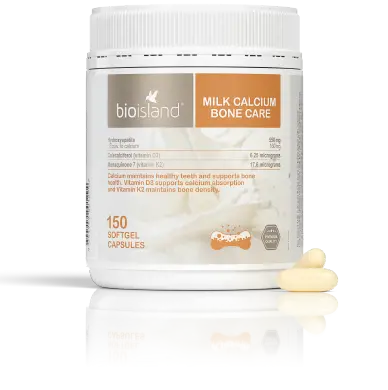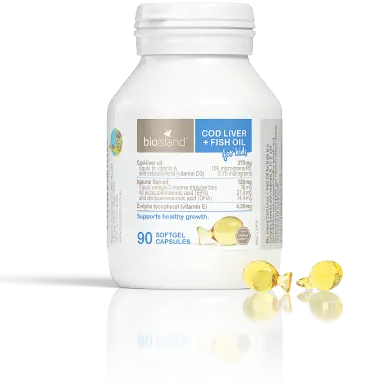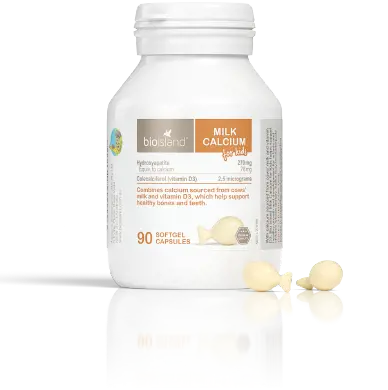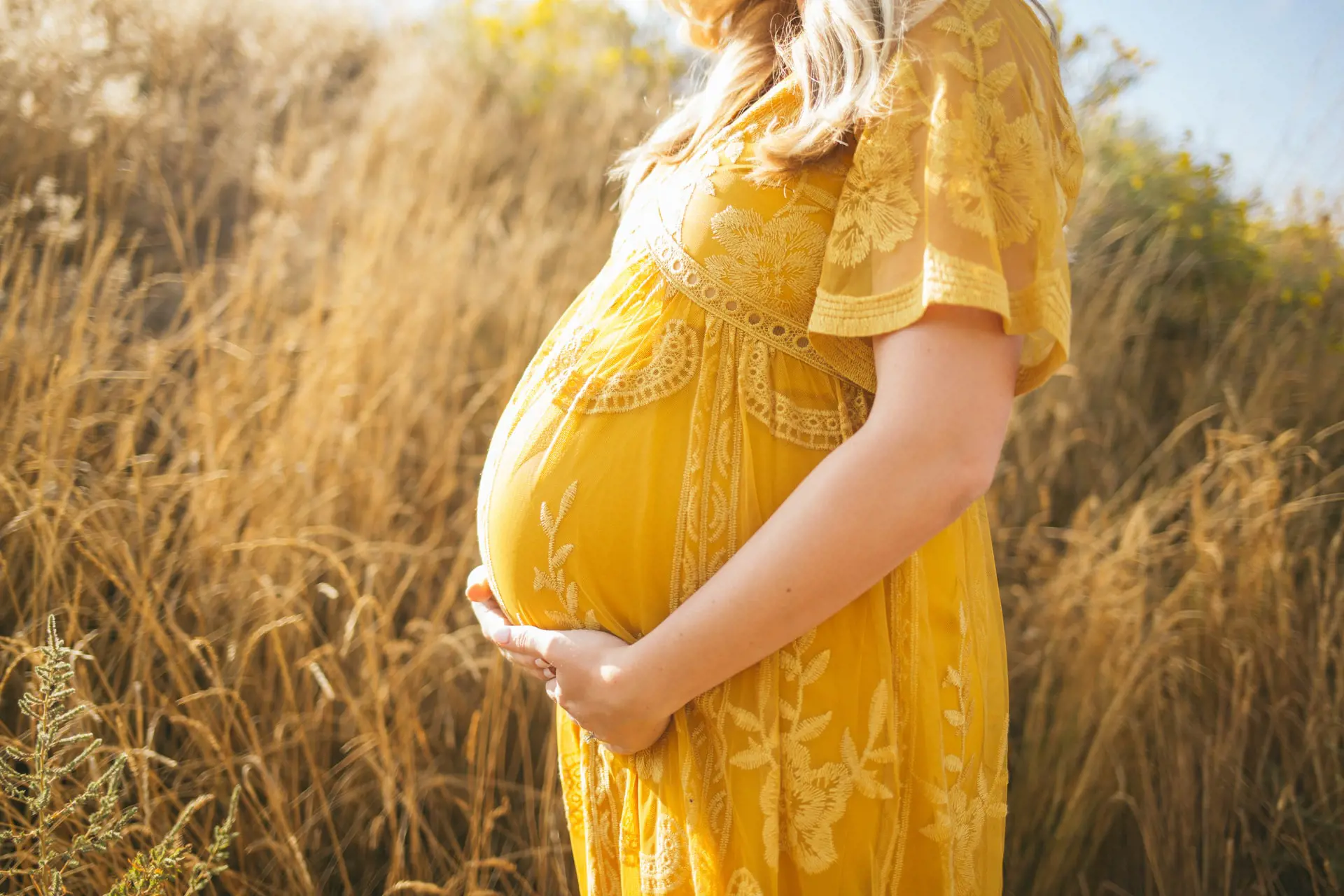
Vitamin D during pregnancy and breastfeeding
Vitamin D is an important nutrient for our bodies and helps to support our immune system, healthy cell division, and bone health.
Healthy Pregnancy
By Bio Island Nutrition Team
Vitamin D is an important nutrient for our bodies and helps to support our immune system, healthy cell division, and bone health. Vitamin D is especially important for women who are wanting to conceive, already pregnant, or breastfeeding. This is because vitamin D is important for optimal maternal, foetal, and child health. Prevention of vitamin D deficiency during pregnancy is especially important as a deficiency in this nutrient has been associated with adverse health outcomes such as gestational diabetes, preeclampsia, and increased chance of caesarean section. In newborns, vitamin D deficiency may increase the chances of low birth weight, asthma, type 1 diabetes, neonatal rickets, and risk of neonatal hypocalcaemia.
The Australian Government National Health and Medical Research Council recommends that pregnant and lactating women aim for 5.0 µg (200IU) per day. These guidelines are based on the rationale that the placental transfer of vitamin D from mother to foetus is too small to affect the mother’s vitamin D requirements. However, the current guidelines highlight the importance of preventing maternal deficiency of vitamin D as this can affect the growing baby.
The women who are most at risk of vitamin D deficiency during pregnancy and breastfeeding are those that do not receive adequate exposure to sunlight each day, women who have darker skin, and/or cover themselves for religious, cultural or lifestyle reasons. For at risk groups vitamin D supplementation of 10 µg (400IU) per day is recommended. Taking a vitamin D supplement at the recommended doses has not been shown to have no harmful effects on mothers and their babies.
Most prenatal vitamins include some vitamin D in the form of cholecalciferol or vitamin D3 although it is important to check the label as the amount varies between preparations. Currently in Australia it is not considered necessary for pregnant women to test their vitamin D levels before supplementation, but it is always a good idea to speak with your doctor if you have any concerns as it may be advisable to have a blood test before beginning supplementation.
It is also important for pregnant and breastfeeding women to achieve adequate calcium intake along with vitamin D, as these two nutrients work synergistically together. Adequate calcium intake can be achieved by consuming 3 to 4 serves of dairy foods (or fortified alternatives) each day. If this is not possible there are prenatal supplements available for expectant mothers and you can discuss these with your doctor, midwife, or registered dietitian.
If a mother has sufficient vitamin D stores during pregnancy and breastfeeding, their baby will not usually require additional supplementation. However, some experts recommend that babies are supplemented with vitamin D drops during the first year if they are more at risk of vitamin D deficiency because the mother is deficient. Babies who are exclusively breastfed are also at more risk of deficiency as breastmilk does not contain sufficient vitamin D, unlike infant formula. Advice on supplementation for babies and children varies and it is important to speak with your doctor or midwife if you are considering supplements for your child.
This information does not take into account your personal situation and is general in nature. You should consider whether the information is appropriate for your needs and seek professional medical advice.
Always consult your healthcare professional before taking any supplements or if any concerns arise. Advise your doctor of any medicines you take during pregnancy, particularly in your first trimester. If you are concerned about the health of yourself or your baby, talk to your health practitioner.


